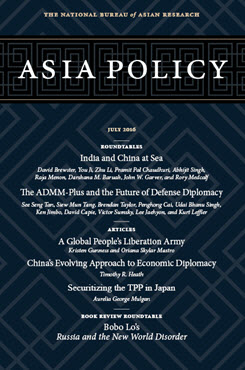China's Evolving Approach to Economic Diplomacy
This article argues that China’s approach to economic diplomacy following the global financial crisis, while designed to improve the country’s competitiveness, has weakened the role that trade and investment have traditionally played in restraining tensions with the U.S.
EXECUTIVE SUMMARY
MAIN ARGUMENT
China’s approach to economic diplomacy has undergone significant changes in recent years, especially after the global financial crisis. Responding to China’s maturation as the second-largest economy in the world, Chinese leaders have called for their country’s transformation into a “strong trading power.” To this end, they have directed reforms to deepen Asia’s integration as a regional economy, modify international trade rules and standards, and secure needed technology, resources, and markets to improve China’s competiveness. This shift has occurred at a time of intensifying strategic competition with the U.S. and the Chinese economy’s increasing exposure to threats around the world. Concerned about its vulnerability in the face of these realities, China has begun to view requirements for economic growth in terms of national security. The net effect of these changes has been a weakening of the role that trade and investment ties have long played in restraining political and security tensions in U.S.-China relations. The bilateral relationship thus appears to be entering an era in which intense strategic competition coexists with deep economic interdependence.
POLICY IMPLICATIONS
- Due to the intermingling of economic and security issues, disputes over either type of issue are likely to grow protracted and more difficult to resolve. More research and creative policy work are required to think through ways of carrying out a peaceful competition in the economic, security, and political realms.
- To dampen economic competition, U.S. policymakers should seek ways both to participate in Chinese-led economic initiatives such as the Asian Infrastructure Investment Bank and to accommodate Chinese cooperation in U.S.-led initiatives, such as by reforming voting shares in the International Monetary Fund to better reflect China’s economic strength.
- U.S. policymakers should seek to increase dialogue with China and other large developing countries over international rules, norms, and principles.
About Asia Policy
Asia Policy is a peer-reviewed scholarly journal presenting policy-relevant academic research on the Asia-Pacific that draws clear and concise conclusions useful to today’s policymakers. Asia Policy is published quarterly in January, April, July, and October and accepts submissions on a rolling basis. Learn more


